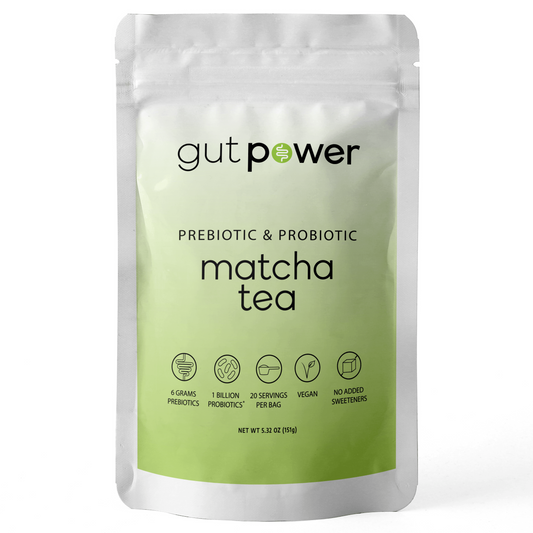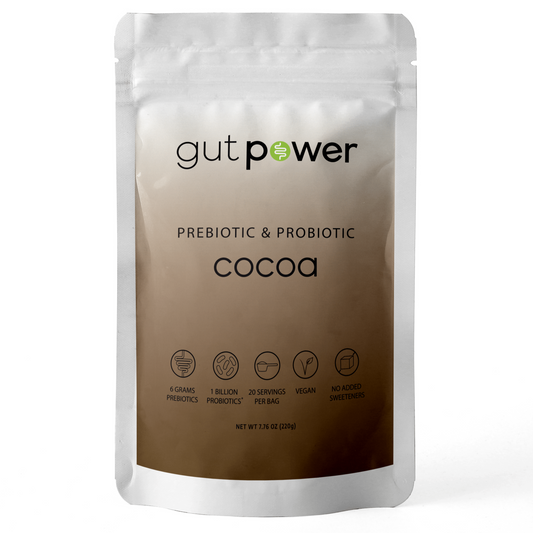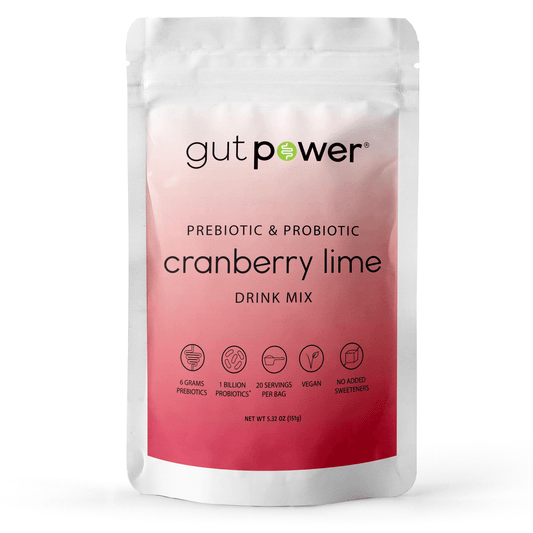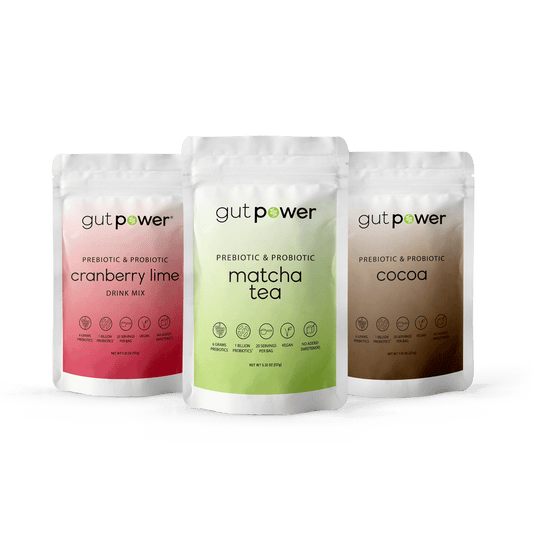Gut health is key to overall wellness. So how do you improve gut health naturally? In this article, we'll teach you 3 simple steps to get you on the way to better digestive health.
Do You Have Imbalanced Gut Bacteria?
The gut microbiome - the collection of bacteria, viruses, and yeasts that hang out in your large intestine - need to be balanced in order to function well.
When the balance between “good” gut bacteria and “bad” gut bacteria gets off-kilter, your gut (and overall) health can start to suffer.
Research indicates that imbalanced gut bacteria may play a role in:
- Digestive problems (bloating, excessive gas, constipation, diarrhea, IBS)
- Skin problems (acne, eczema, etc)
- Autoimmune conditions (rheumatoid arthritis, IBD)
- Metabolic conditions (diabetes, metabolic syndrome, high blood pressure)
- And more...
If you’ve got any of these issues, it’s a good sign that supporting your gut bacteria might be a good idea.
And improving your gut health naturally doesn't have to be difficult. In fact, with just a few important tweaks to your diet and lifestyle, you can be well on your way to a healthy gut.
How to Improve Gut Health Naturally
Like we mentioned, improving your gut health naturally doesn’t have to be hard.
By improving your diet, adding prebiotics & probiotics to your routine, and incorporating stress management techniques into your daily life, your gut health will be on a much better path!
Let’s dive into these 3 simple changes you can make to improve your gut health easily and effectively.
Eat a Varied Diet for Better Gut Health
When we talk about the best diet for gut health, variety is the most important factor. That’s right - you don’t need to worry about restricting your diet down to a very select set of foods, or doing any kind of gut cleanse to improve your gut health.
Simply eating a lot of different colors of fruits and vegetables is the number one best thing you can do for your gut health. Yep, that’s it!
You see, colorful fruits and vegetables contain things called “polyphenols” - in fact, it is these compounds that create the beautiful colors in the food you get to look at!
But polyphenols do something beyond just look pretty - they act as “prebiotics,” or food for your good gut bacteria. That means that they help to increase counts of healthy bacteria in your gut, therefore balancing your gut microbiome.
Remember, a balanced gut microbiome is key to overall wellness.
Try to get 30-40+ different types of plant foods into your diet over the course of a week (this is easier than it might sound - coffee, tea, spices, etc all count, too!). The more colors, the better!
Add Prebiotics to Your Routine
We just discovered why prebiotics are so important to gut health - they act as fuel for the good gut bacteria in your microbiome, helping to increase their counts and balance the gut microbiome.
Beyond what you can get in your diet, it’s sometimes helpful to add supplemental prebiotics to your routine as well.
Why?
Well, you can think about the doses of prebiotics in supplements or food products as “therapeutic” - meaning, research has indicated that these higher amounts than normally found in food have beneficial effects on the body.
While not totally necessary, they can be quite helpful! This is especially true if you deal with annoying digestive problems like bloating, gas, constipation, or diarrhea.
So on top of eating lots of colorful plant foods in your diet, you may want to consider adding a prebiotic to your routine as well to support your gut health.
Add Probiotics to Your Routine
Remember those “good” gut bacteria we’ve been talking a lot about? Well, another way to refer to those are “probiotics.”
You’ve probably heard of probiotics before - they’re a hot topic these days and for good reason! As you can imagine, adding live, beneficial bacteria directly into your gut microbiome can have a host of benefits.
Probiotics can be found in fermented foods like yogurt, kombucha, sauerkraut (if it’s fermented), and more. They can also be found in supplements.
Incorporating probiotics into your diet through food or supplements can support your gut health.
The benefit of a probiotic supplement over fermented foods is that you can choose which probiotic strain might be the most beneficial for you - not all probiotic strains are created equally. In fact, different probiotic strains can have completely different effects on the body, so it’s a good idea to choose a strain that has shown to be helpful for the particular issues you’re dealing with.
Regardless of the way you choose to incorporate them, probiotics are a great choice for supporting your gut health!
Incorporate Stress Management
When trying to improve your gut health naturally, one of the best things you can do is to get a handle on your stress.
That’s because stress can imbalance your gut bacteria - not good! Remember, a balanced gut microbiome is a healthy gut microbiome.
So for better gut health, incorporate stress management techniques into your routine, like meditation, deep breathing, yoga, and more.
One of the easiest ways to incorporate stress management techniques is to simply take a few moments before eating to take some deep breaths.
Your digestive system needs to be in a relaxed state in order to digest your food properly, so this has the added benefit of improving digestion in the moment as well as long-term.
And when it comes to stress management, longer is not necessarily better. It may actually be more helpful for you to practice more often than to practice for longer.
So don’t feel like you need to sit down for an hour-long meditation session to get any benefit - even just a few moments a day may be helpful, and the more often you do it, the better!
The Bottom Line: Improving Gut Health is Easy
Improving your gut health naturally requires just 3 simple things: eating plenty of colorful plant foods, incorporating prebiotics and probiotics into your routine, and adding stress management techniques to your lifestyle.
All of these changes add up to a healthy, balanced gut microbiome!





